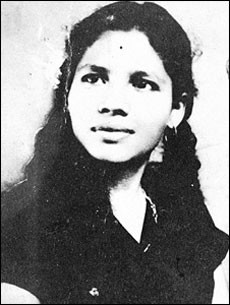Aruna Shanbaug case: SC allows passive euthanasia in path-breaking judgment
Mar 7, 2011

Refusing mercy killing of Aruna Shanbaug, lying in a vegetative state for 37 years in a Mumbai hospital, a two-judge bench of justices Markandeya Katju and Gyan Sudha Mishra, laid a set of tough guidelines under which passive euthanasia can be legalised through high court monitored mechanism.
The apex court while framing the guidelines for passive euthanasia asserted that it would now become the law of the land until Parliament enacts a suitable legislation to deal with the issue.
The bench also asked Parliament to delete Section 309 IPC (attempt to suicide) as it has become "anachronistic though it has become Constitutionally valid."
"A person attempts suicide in a depression, and hence he needs help, rather than punishment," Justice Katju writing the judgement said.
The apex court said though there is no statutory provision for withdrawing life support system from a person in permanently vegetative state, it was of the view that "passive euthanasia" could be permissible in certain cases for which it laid down guidelines and cast the responsibility on high courts to take decisions on pleas for mercy killings.
"We agree with senior counsel T R Andhyarujina (who assisted the court in the matter) that passive euthanasia should be permitted in our country in certain situations, and we disagree with Attorney General (G E Vahanvati) that it should never be permitted," said the bench.
A very sad and a rare case found in indian judiciary.












